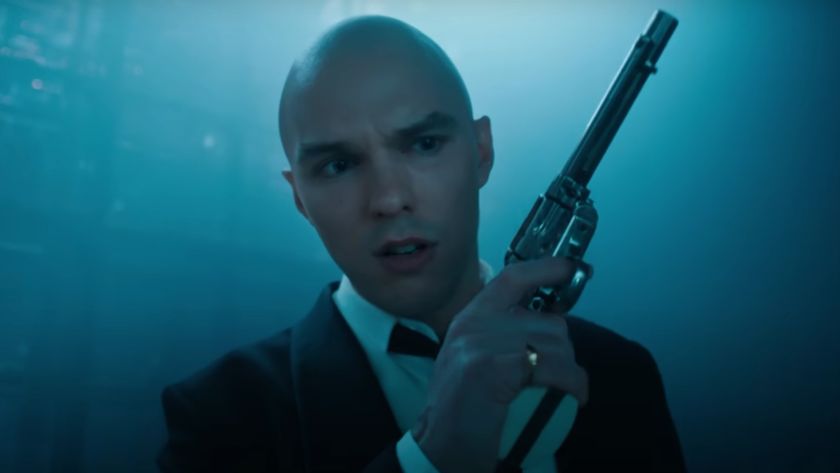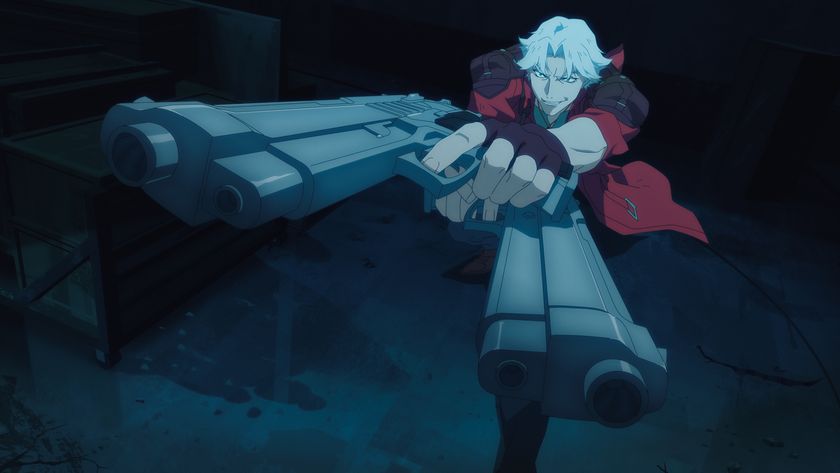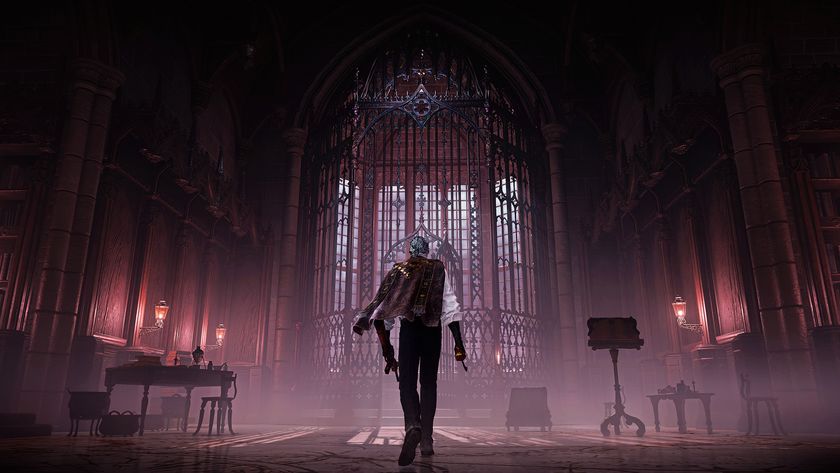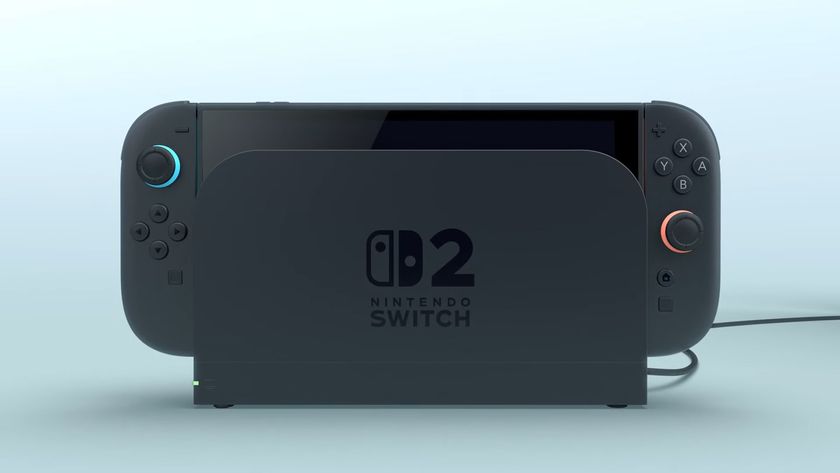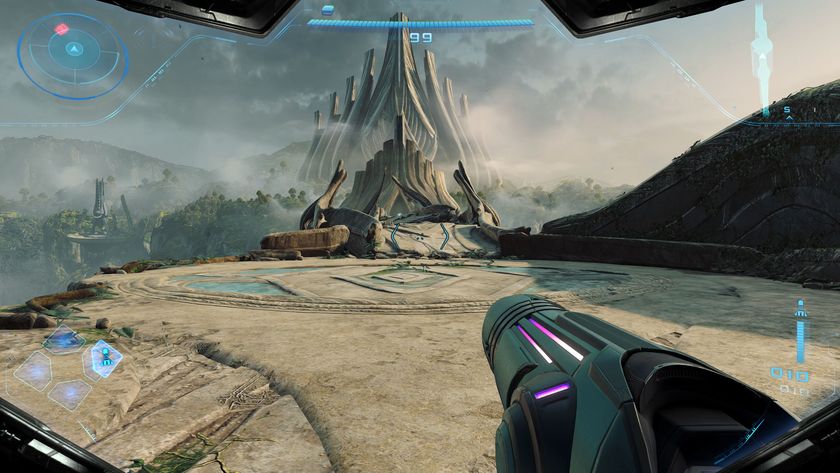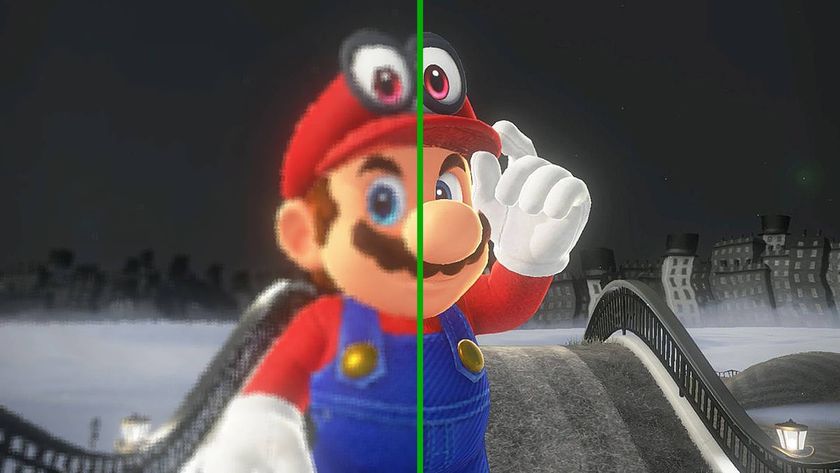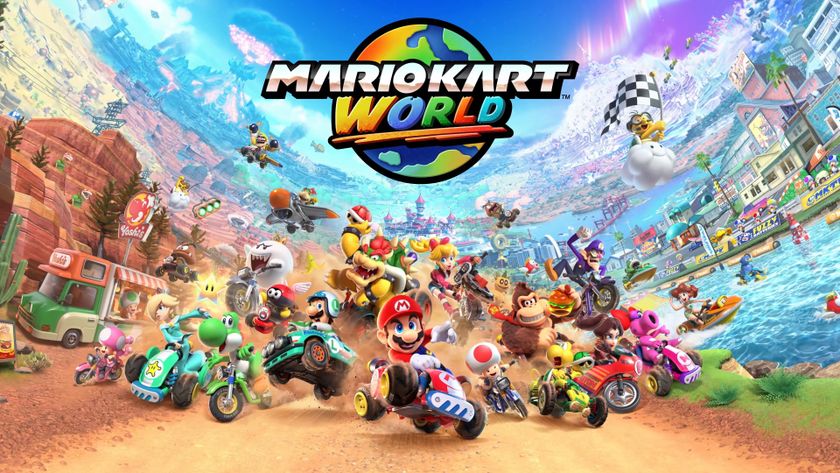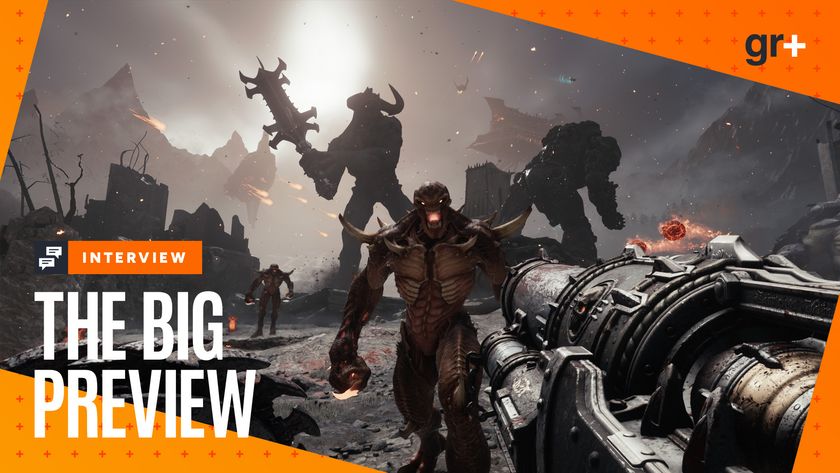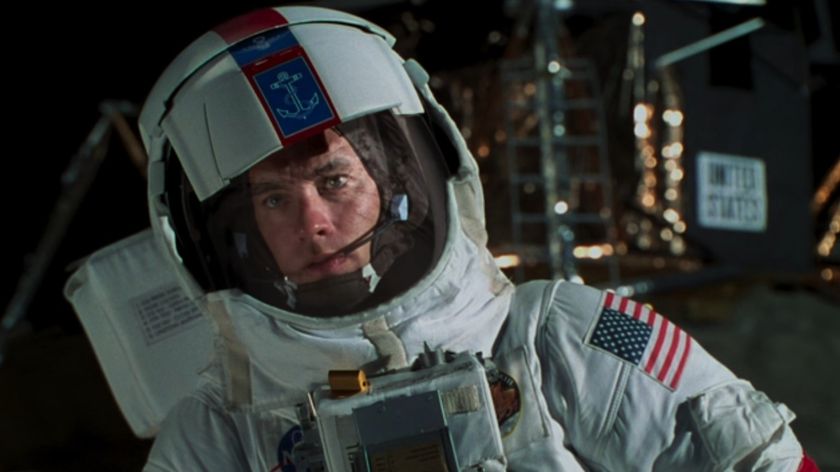Star Wars is the perfect place to mix creativity with commercial safety. And EA seems to know it
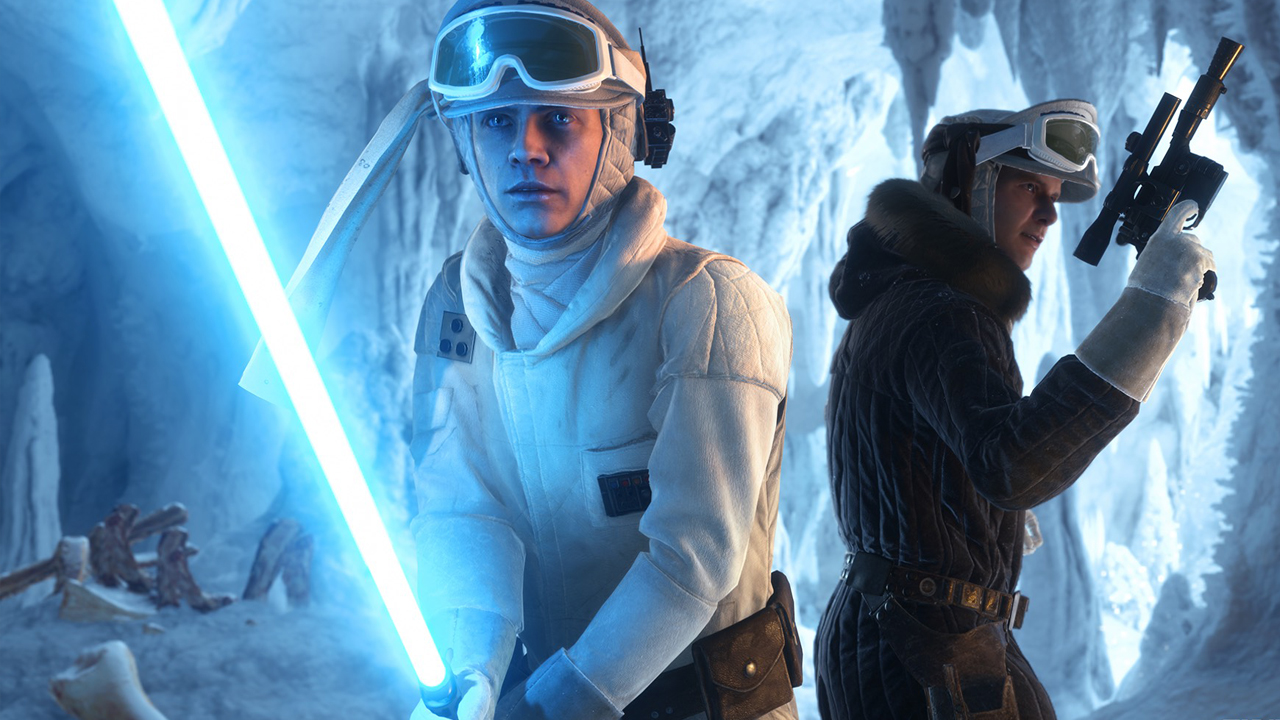
Star Wars, as a positive, creative force, is much bigger than seven movies. It’s much bigger than the immediate enjoyment of its audience too. Because as pop culture goes, Star Wars is rather unique. It’s commercially bulletproof, yes, but it’s also packed with granular potential. It’s huge, sweeping, crowd-pleasing stuff, but it also comes with enough nuanced, ever-expanding lore to keep a Lord of the Rings nerd backed up on their reading list for years. It’s made of immediate, instinctively recognisable sights, sounds and tropes, meaning that anyone can instantly latch on and ‘get it’, but it also has the scope for nigh-endless explorations of fresh, new, entirely unexpected ideas. It’s the populist, pulp sci-fi universe that grew into a dense, ever-growing anthology-world of vast narrative diversity and tonal variety.
That’s why its universe lives in so many different media. Cartoons. Video games. Board games. Table-top RPGs. Books. Comics. Theses things don’t just exist because Star Wars merchandise is easy to sell. They exist because Star Wars merchandise is easy to plausibly create, with a sense of real legitimacy and worth. There’s no other fictional universe around that can expand with such omnidirectional, cross-media girth without feeling contrived or shoe-horned. The most telling thing is that none of these things actually feel like merchandise at all, but rather like core pieces of the central property itself.
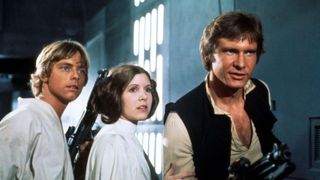
That’s why the ridiculous glut of Star Wars games announced at EA’s E3 2016 press conference doesn’t feel ridiculous at all. In fact it feels like a beneficial event for everyone, from Star Wars fan, to game developer, to publisher. We got word of major games from Visceral, Respawn, DICE, Criterion and Motive, as well as vaguer talk of more from BioWare, and some new mobile stuff. And you know what? I’d have happily taken a couple more announcements, if they were made in the same vein as the stuff we were told about. Because it looks like EA’s Star Wars strategy is embracing exactly what makes Star Wars really appealing as a property. The fact that as much as a megaton license, it’s a pre-built world to explore with rare freedom.
And thus, where once we might have had a handful of generic action games, and popular contemporary genres awkwardly stapled to familiar iconography by jobbing studios, we now have some of EA’s – hell, the industry’s – most talented and distinct developers working on a broad slate of ‘very different’ games. What’s more, those studios are seemingly making them as major, stand-out projects, with the same kind of creative intent as applied to any major, AAA game. You don’t put the developers of Battlefield, Dead Space and Uncharted on a license if you’re still working with a lazy, cash-in mindset.
And thus it strikes me that, Star Wars might be the solution to a major problem that EA has struggled with for much of the last decade. You see, EA is no longer the vast, soulless churn-factory whose name was once synonymous with the worst trends of the big budget industry. Since the early days of the last generation, it has been conspicuously pushing to up its creative game, attempting to deliver gloss alongside quality while taking more than a few unexpected risks. It hasn’t always worked out though. The EA Partners scheme – which aims to marry EA’s marketing clout with the creativity of independent developers – hasn’t delivered many great critical standouts, Titanfall, Rock Band and Bulletstorm being the few exceptions. And it has furnished even less major commercial hits.
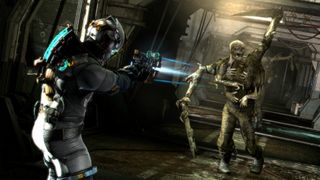
Similarly, the Dead Space series always struggled to find the audience it deserved, until EA ultimately lost faith in its long-term franchise building plan and buried the series with a desperately unwanted, microtransaction-driven, commercial shooter overhaul in part three. And as for Mirror’s Edge? That series is the epitome of creative bravery blowing up in its producer’s face amid commercial indifference and flawed execution. Twice, now. In terms of big, interesting wins, we can add Mass Effect, Dragon Age, and not much else.
EA has been so close for so long, but – for reasons of a blinkered buying public, unrealised potential, or a wavering confidence in the big risks – has never quite nailed its aspiration of using its heavy, corporate powers for creative good. But Star Wars can fix that. I think Star Wars can give EA a way to do exactly what it’s been trying to do for years, by Trojan Horsing that creative aspiration through development to an eager buying public, under the guise of big, crowd-pleasing franchise fodder. Because, as I discussed up top, Star Wars is a perfect medium for doing that with.
Sign up to the 12DOVE Newsletter
Weekly digests, tales from the communities you love, and more
So EA can launch a new, cinematic, character-driven action franchise from the (once) creative director of another company’s big hitter, but do so free of the Dead Space jitters because of that gold logo on the box. It can pull in the head honcho on God of War 3, have him work with the Titanfall studio on a new action game idea, and not worry about it vanishing like Respawn’s debut release, because it’s set not in a new universe that needs selling and explaining, but in a well-known galaxy far, far away.
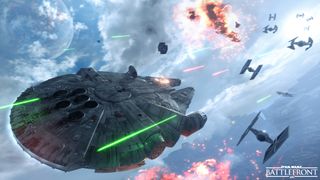
Jade Raymond can head up a new idea at a new development team, and do so free of Assassin’s Creed comparisons – or any of her Ubisoft baggage - because Star Wars is a bigger deal. There’s no need for EA to change its plans. It doesn’t have to make anything specific because of the license, and nor does it need to not follow any of the creative leads it was considering. It just needs to fold them plausibly into the Star Wars universe. And that’s easy, because Star Wars makes it easy.
Because that’s the thing. Star Wars gives you all the benefits of a big license – arguably the biggest license – with its inbuilt fanbase, and colossal insta-hype, and the simple fact that millions upon millions of people immediately want anything associated with it to be good. But you don’t have any of the restrictions that usually cause licensed games to fall over. You have no single plot, or set of characters, or time period, or release schedule to fit. Star Wars is a vast, eclectic universe that actually wants you to make it more so. It’s open to whatever you want to do, and it both rewards and safeguards creativity with its massive scope and unstoppable momentum.
And just say that one of two of those big EA Star Wars games are crap. What does it matter? If the prequels couldn’t kill Star Wars – could you have imagined SW being as exciting and vital as it now is, post-Force Awakens, five years ago? – then a misfiring video game certainly won’t. Because there’s always the next one. And fans will always want the next one to be good. And the way that EA is applying its existing creative strategy to the license, there’s every chance that it will be.
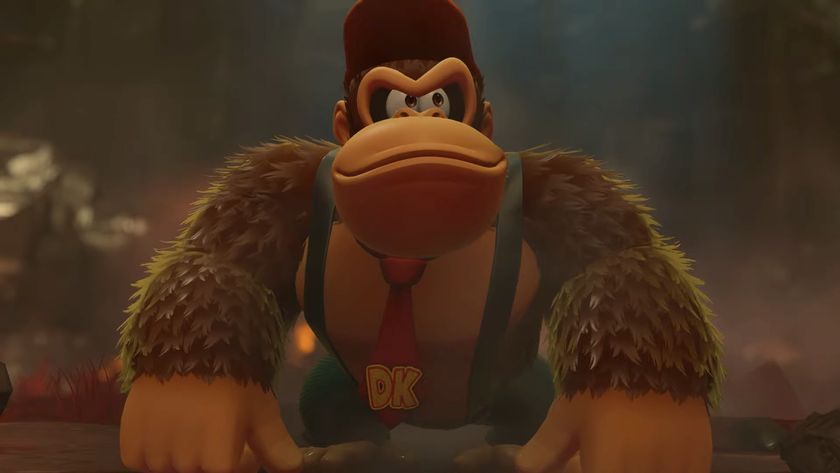
Donkey Kong veteran gives Bananza's character redesign his official seal of approval, praising the new Switch 2 game's look: "It's really ace!"

Nintendo says the Switch 2 "isn't simply an improved Nintendo Switch, we redesigned the system from the ground up," and after 8 years, I'd sure hope so

